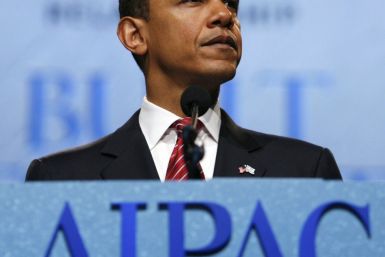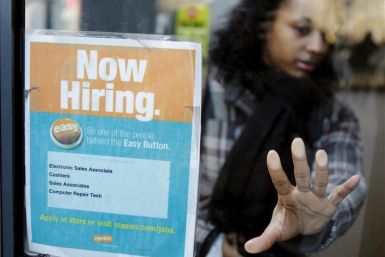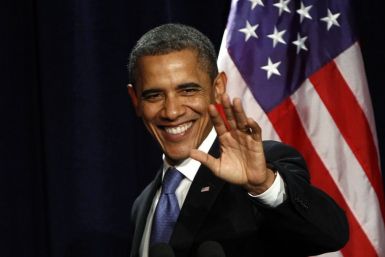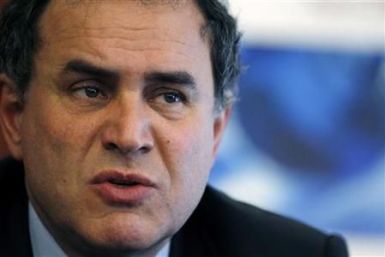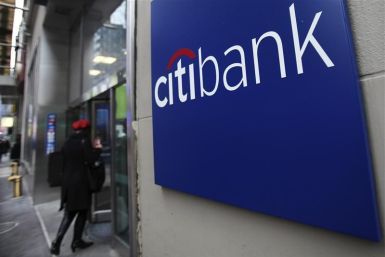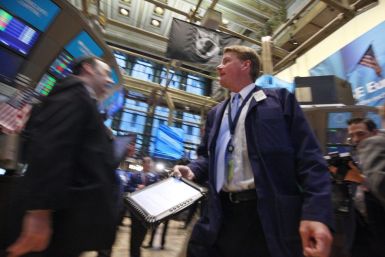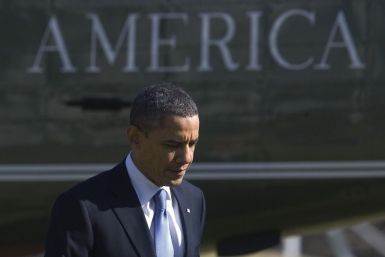Expectations that the euro zone will fall into recession this year or, at best, post anemic growth, are growing.
President Barack Obama's re-election campaign is expected to release a much-anticipated documentary on Thursday, and Republicans have already crafted a visual pre-emptive response.
Labels like liberal and conservative have become so over-used that I frankly must admit I have no idea what they even mean anymore.
The number of Americans claiming new jobless benefits fell back to a four-year low last week and manufacturing in the Northeast held up in March, providing more signs the economy was firmly on a self-sustaining growth path.
Claims for jobless benefits fell back to a four-year low of 351,000, providing more evidence that the labor market is healing.
Shares of Citigroup (NYSE: C) fell more than 4 percent Wednesday after the Federal Reserve said the No. 3 U.S. bank flunked a “stress test” of its financial viability.
Reynolds American Inc. (NYSE: RAI), the second-largest U.S. tobacco company, said Wednesday it would eliminate 10 percent of its workforce, or around 540 workers, by the end of 2014 in order to save money and refocus its business.
For the first time since early July, more Americans approve of the job President Barack Obama is doing than disapprove, according to a new Reuters/Ipsos poll that shows his approval rating now at 50 percent.
Economist Nouriel Roubini of Roubini Global Economics thinks a euro zone breakup could occur as soon as 2013.
Citigroup Inc., the third-largest U.S. bank, and SunTrust Banks Inc. failed the Federal Reserve's latest stress test because they lack enough capital to endure a hypothetical shock to the U.S. economy, the central bank said Tuesday.
The majority of the largest banks will continue to have enough capital to satisfy regulators, even if they suffer a financial shock that includes unemployment hitting 13 percent and a 21 percent drop in housing prices, the Federal Reserve said on Tuesday.
U.S. stocks soared Tuesday in afternoon trading, amid strong reports of retail sales and business inventories and buoyant sentiments from the Federal Reserve.
The Federal Reserve officials decided to keep the near-term interest rates unchanged at ultra-low levels but offered few clues about plans for further easing, as highly anticipated, while the Fed noted recent strength in the labor market and that strains have eased in global financial markets.
The Federal Reserve on Tuesday provided few clues on the prospects for further monetary easing, offering just a slight upgrade to its economic outlook while restating concerns about the high level of unemployment.
A full-text of the Federal Open Market Committee's statement from March 13 meeting.
A Bloomberg National Poll showed 38 percent of Americans saying their situation is better than when Barack Obama took office, an increase from September, when 27 percent said the same.
The European Commission doesn't believe the Greek austerity measures currently adopted are enough. For 2013 and 2014, it is demanding additional cuts equivalent to 5.5 percent of the GDP, according to a report obtained by Reuters.
Obama's approval rating has fallen to a record low of 41 percent. What does this mean for the general election? The numbers tell a complicated story.
Spain announced it will adhere to budget cuts demanded by the European Union, ending the first tussle over new, stricter budgetary rules within the trading bloc.
Sales at U.S. retailers jumped in February by the most in five months, showing broad-based gains from autos to building materials, underscoring yet another hopeful sign of a strengthening economy.
Greece will have to slash a further 5.5 percent of GDP in government spending in 2013 and 2014 to meet agreed fiscal targets underpinning the second international bailout for Athens, a European Commission report said.
Stock index futures pointed to a higher open on Wall Street on Tuesday, with futures for the S&P 500 up 0.56 percent, Dow Jones futures up 0.45 percent and Nasdaq 100 futures up 0.54 percent at 0949 GMT.









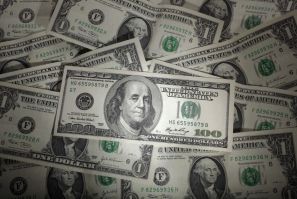
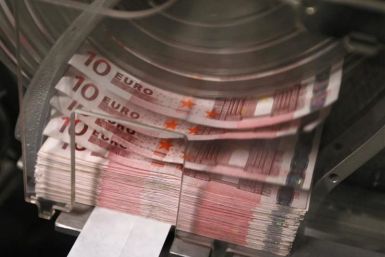
!['The Road We've Traveled': Republicans Mock Obama Documentary With Poster [PICTURE]](https://d.ibtimes.com/en/full/109173/road-weve-traveled-republicans-mock-obama-documentary-poster-picture.jpg?w=385&h=257&l=50&t=25&f=e7e65a05416e8ed5d33a36ab07c01117)
